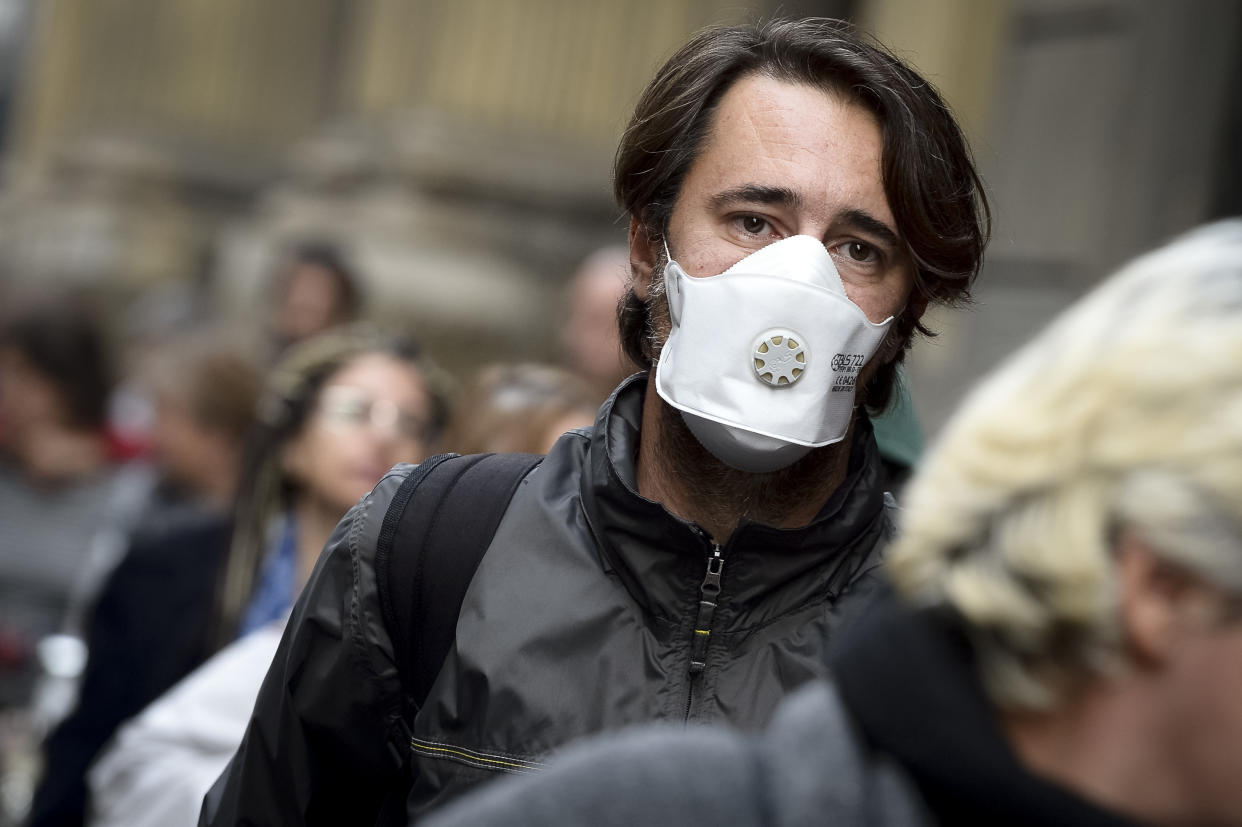Pollution is a problem we *can* solve — and we really have to
Most of us learned about pollution and its harmful effects on the environment in school, and we may have even pledged to save the world when we got older. (Bless our pre-teen, environmentally friendly hearts.) But somewhere along the way, perhaps when we got our first crush, or while just trying to navigate adulthood, many of us forgot about the environment and our responsibility to it. We stopped thinking about how our day-to-day activities can actually contribute to the issue of pollution. This is incredibly unfortunate since pollution is no longer just hurting the world around us — the air, the oceans, the earth — it’s also killing us.
According to a study recently published in the Lancet medical journal, pollution contributed to 9 million deaths, or one in six deaths, worldwide in 2015. Yeah, it’s absolutely mind-boggling. When broken down, that means environmental pollution — from filthy air to contaminated water — is killing more people every year than war; more than natural disasters; and more than many major diseases. These findings not only shed light on pollution as an environmental issue but a public health issue as well — one that requires more attention from those in charge — and from every single one of us because pollution is our problem to solve.
By simply making small changes to your everyday habits, you can help create a healthier planet.
Non-communicable diseases account for 71% of all #pollution-related disease #pollutioncommission #NCDs https://t.co/OHDNmSnVAM pic.twitter.com/2CFnZWhEDE
— The Lancet (@TheLancet) October 21, 2017
Of the 9 million premature deaths caused by pollution, air contamination claimed 6.5 million lives, by contributing to illnesses like heart disease, strokes, and respiratory issues. The air is filled with toxicity from human-generated gas emissions, which come as a byproduct of fossil fuel usage, deforestation, and industrial livestock farming practices.
Water pollution killed another 1.8 million people.
In this case, a mixture of unsafe water sources and the lack of proper sanitation increase the transmission of diseases and typhoid. And what doesn’t kill you can still make you sick: One billion people are pick up illnesses from waterborne pollution every year.
92% of #pollution-related deaths occur in low- and middle-income countries #pollutioncommission https://t.co/QGk4mUebfr pic.twitter.com/XjRdqvz3VL
— The Lancet (@TheLancet) October 20, 2017
Many of these deaths occurred in countries that are still being developed. For example, Bangladesh and Somalia tied for the top spot, with more than 25 percent of deaths linked to pollution. On the flip side, Brunei had the lowest percentage of pollution related deaths, with less than 3 percent. The United States closed out the top 10, falling at 5.8 percent or or 155,000 deaths links to pollution. While this isn’t as big an issue as it is in underdeveloped countries (5.8 percent is still a lot), the water crisis in Flint, Michigan showed just quickly even first-world water sanitation can be compromised.
Which means the United States still has work to do when it comes to creating a healthier, cleaner environment, not only for the sake of the keeping the planet alive, but also for the sake of humans beings.
#Pollution threatens fundamental #humanrights, such as protection of children + most vulnerable #pollutioncommission https://t.co/LP3KvWAo08 pic.twitter.com/1rhMfjeZEl
— The Lancet (@TheLancet) October 22, 2017
Karti Sandilya, from Pure Earth, a non-governmental organisation, said: “Pollution, poverty, poor health, and social injustice are deeply intertwined. Pollution threatens fundamental human rights, such as the right to life, health, wellbeing, safe work, as well as protections of children and the most vulnerable.”
But how can you help tackle the issue of human-cause pollution? Well, if we are causing the issue then we can also take steps toward fixing the issue. You can start small in your everyday life. Vanity Fair’s Green Guide provides a list of simple changes you can make to help save the planet and the people living on it. The list of 50 suggestions includes ditching plastic bags, taking showers instead of baths, going hybrid, and eating vegetarian once a week.
If you’re wondering how eating less meat is beneficial to the planet, The Guardian claims the way cows are raised actually produces more carbon emissions than cars, planes, trains, and ships.
So, eat your veggies and help save the world.
We would be naive to think that these individual changes alone would be enough to turn this dangerous trend around, but it is a solid start. You can also consider contacting your local representatives, because policy reform from the higher-ups in charge of environmental issues could go a long way to cleaning up the planet we call home.



